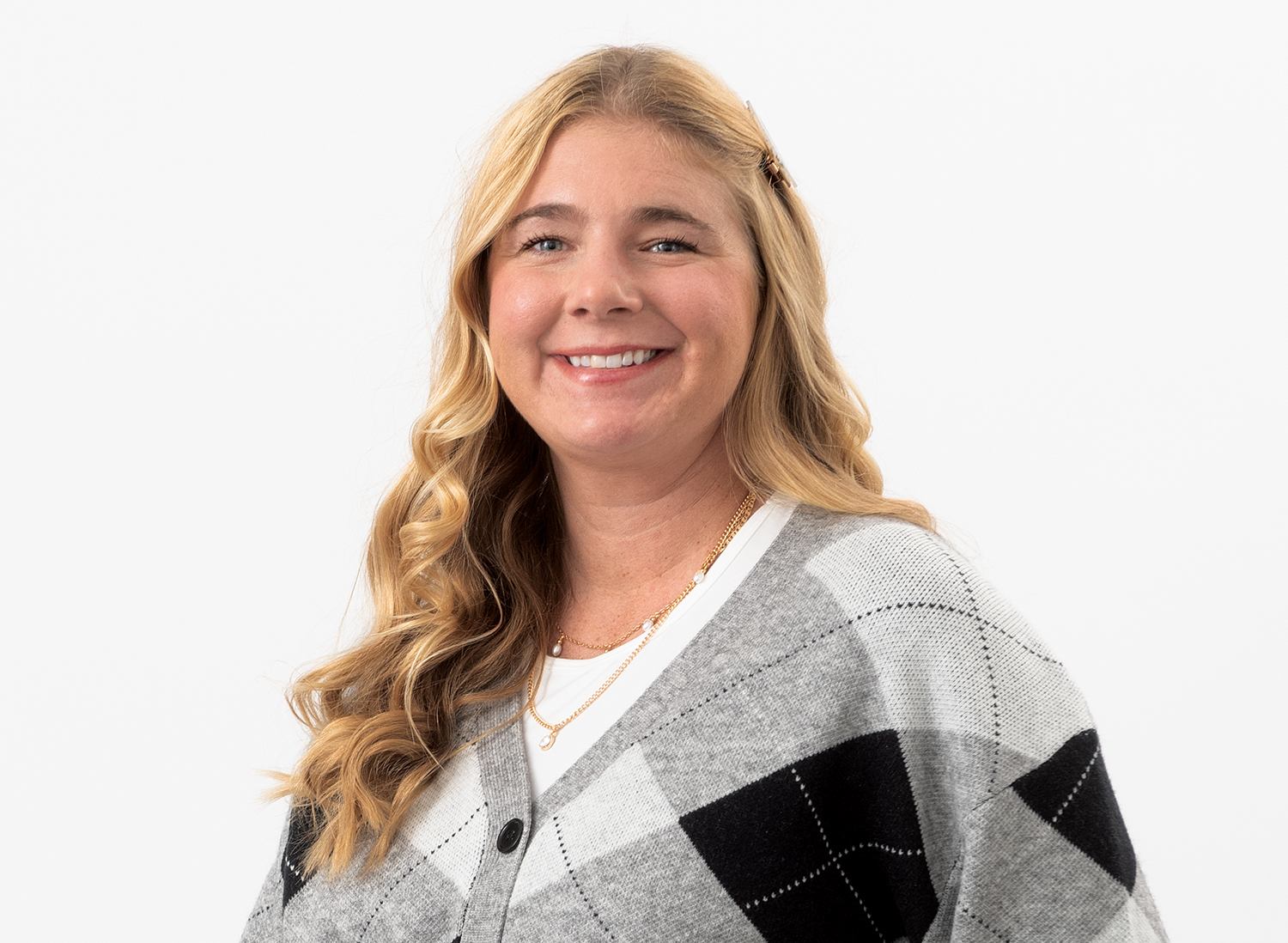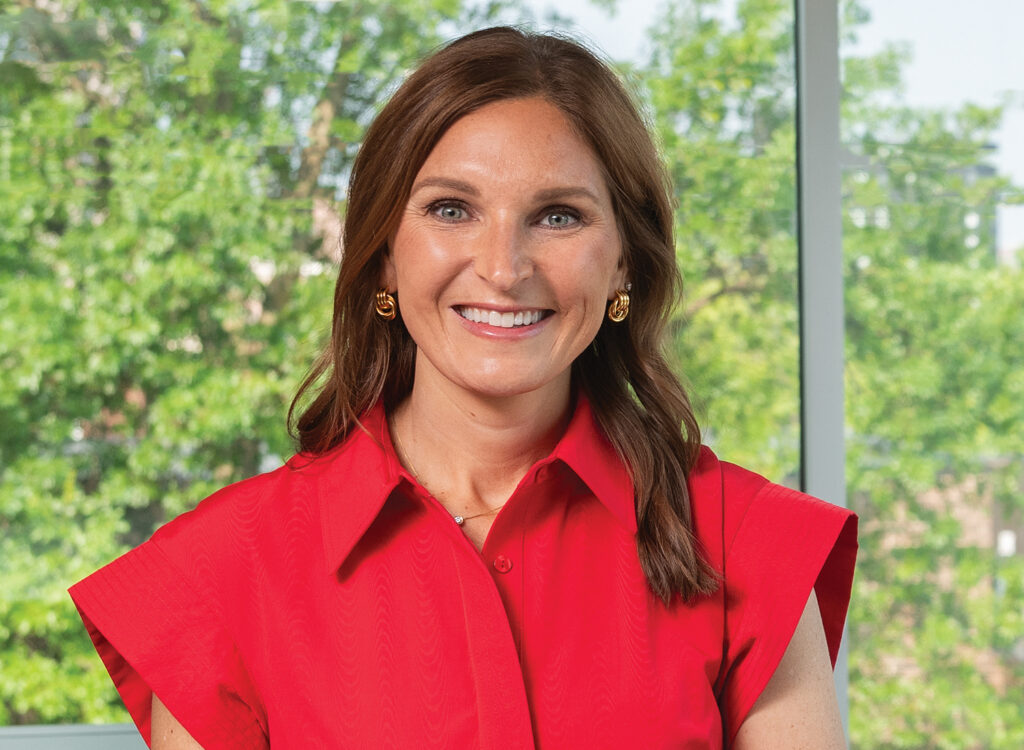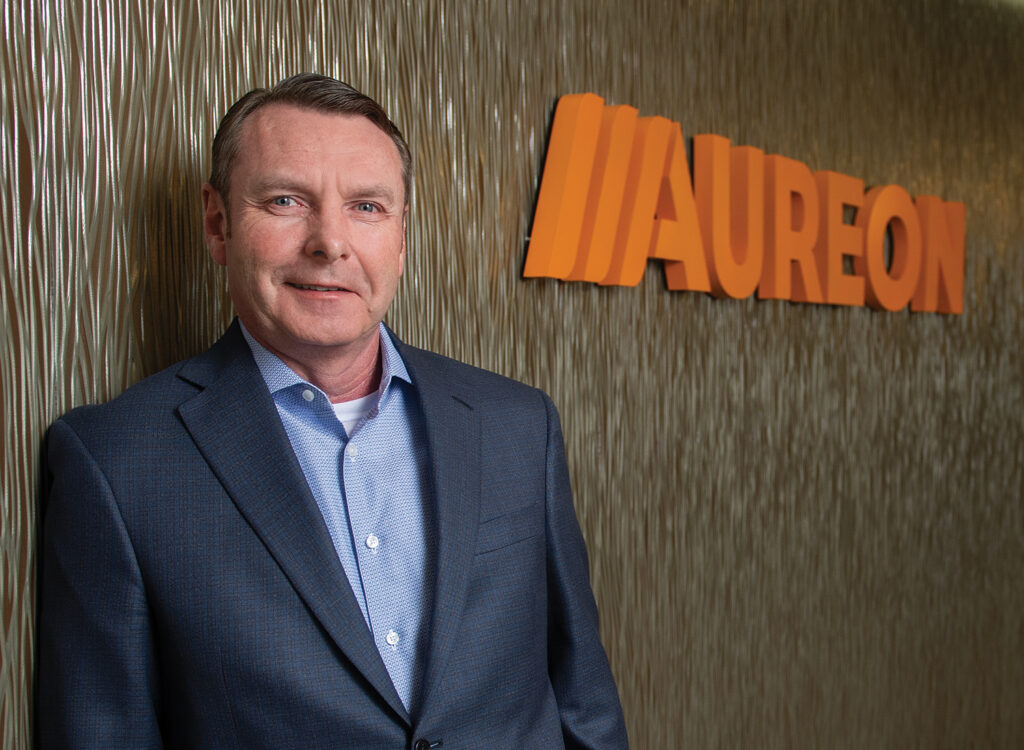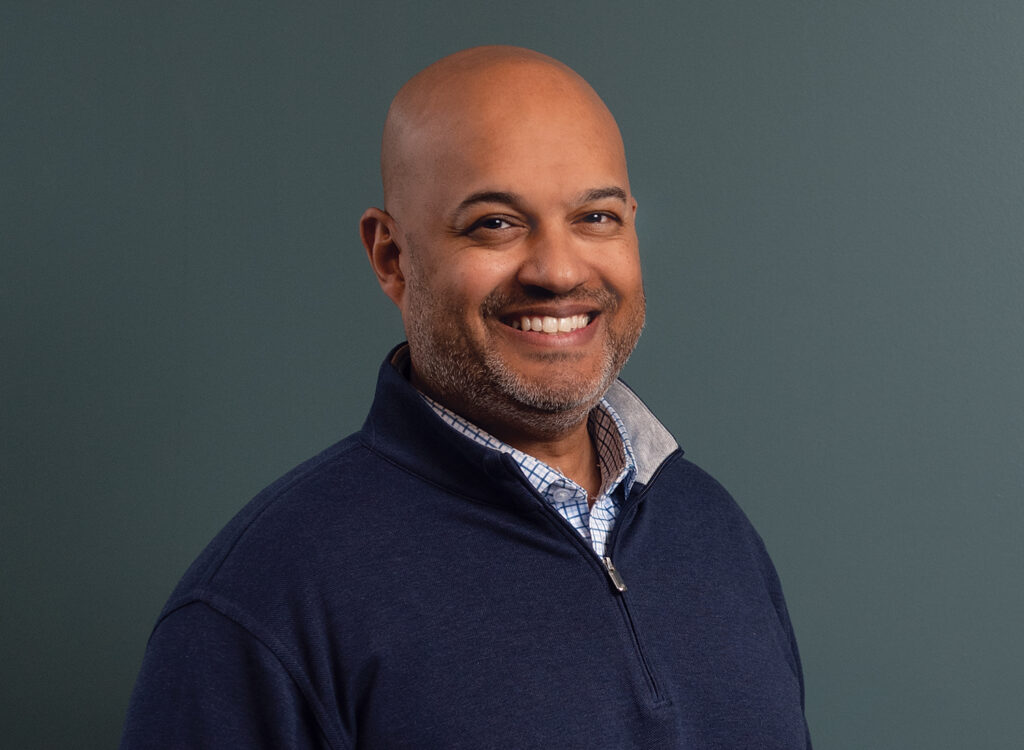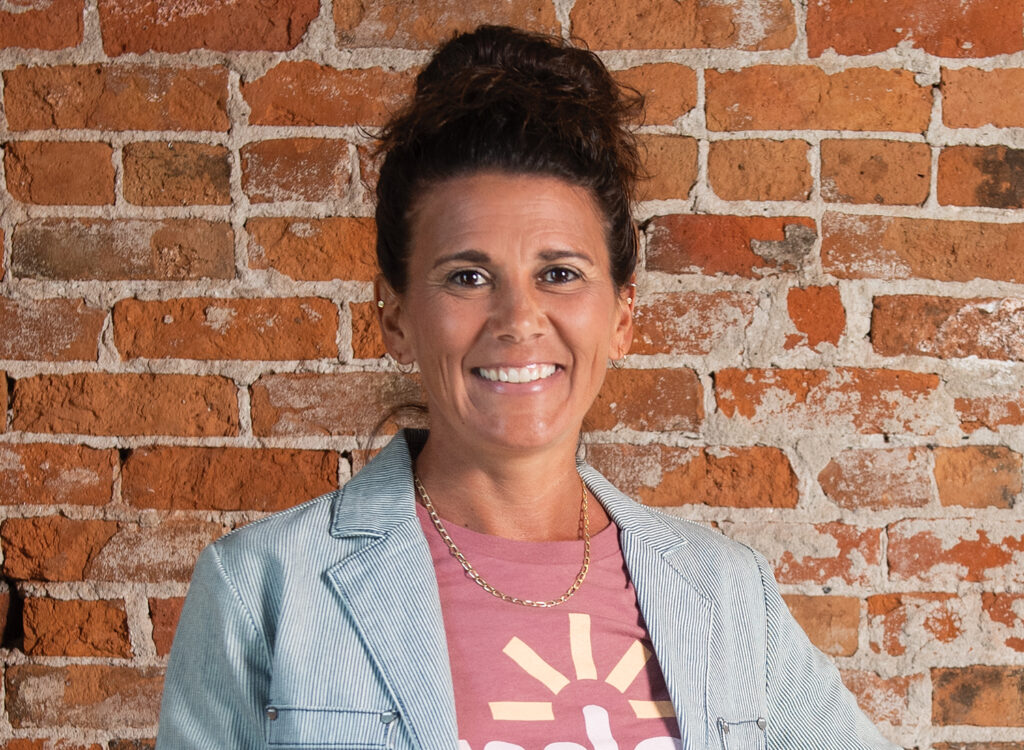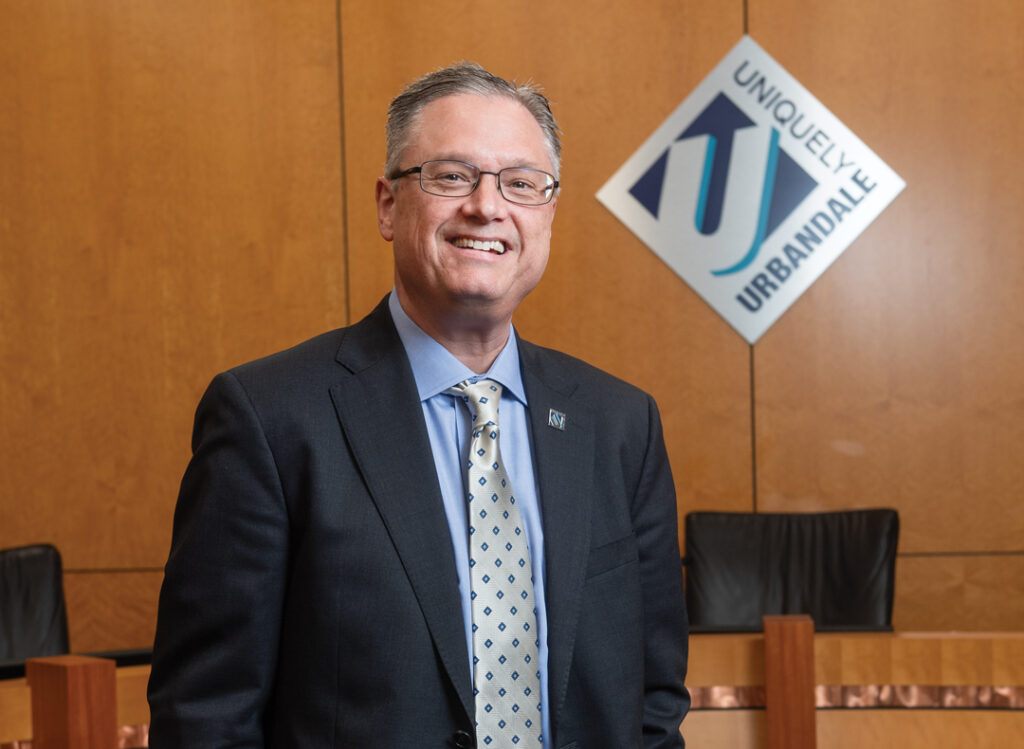A Closer Look: Sydney Stuart
Executive director, Spina Bifida Association of Iowa
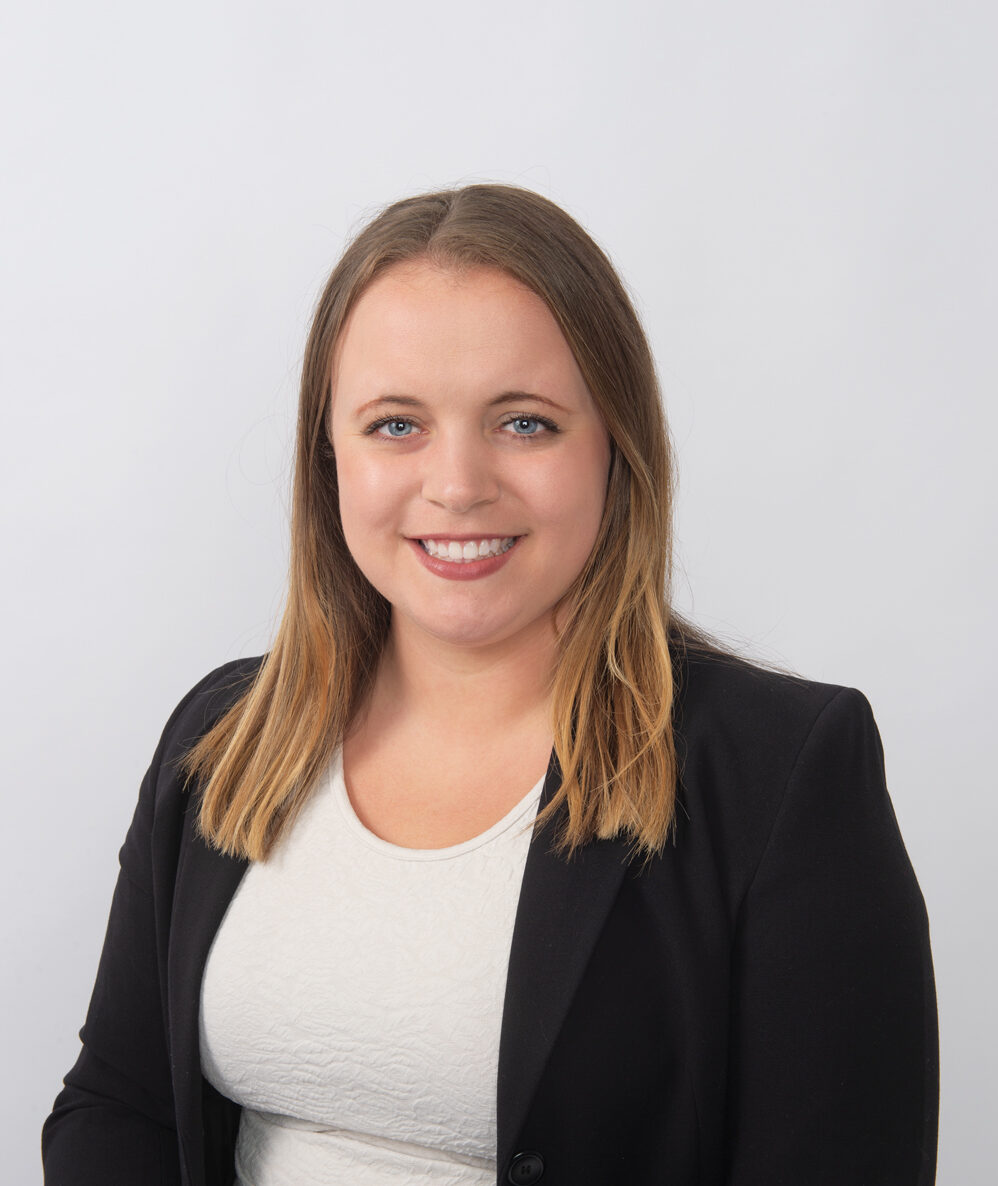
Nearly two decades before the passage of the Americans with Disabilities Act in 1990, a group of moms of children with spina bifida got together weekly to discuss their kids’ care. About 5 in 10,000 Iowa babies are born with spina bifida, which causes a gap in the spine that can result in various cognitive and physical disabilities. In 1974, the group of moms decided to make their advocacy more formal and launched the Spina Bifida Association of Iowa.
In the association’s early years, it focused on accessibility with bus rides to school, ramps and other accommodations, making it possible for those with spina bifida to be included. This past year, thanks to the organization’s advocacy, a new clinic in Iowa City opened to better support specialty health care for Iowans with spina bifida.
In November, the Spina Bifida Association of Iowa celebrated its 50th anniversary. Sydney Stuart, the nonprofit’s executive director since 2022, hopes the organization can expand its advocacy over the next 50 years. We sat down with Stuart recently to get to know her and learn more about the organization.
The following Q&A has been edited and condensed for clarity.
What should the business community know about those that you serve?
The biggest thing that the business community should know is there are no specialists that work with adults with spina bifida, and so a lot of them are pushed off and don’t know where to turn for doctors after they hit 18. Hopefully that will change as we continue to grow the awareness, and especially with the new clinic that opened up at the University of Iowa Health Care Stead Family Children’s Hospital. They’re starting a new spina bifida clinic out there, and so we’ll be more connected with families in Iowa as soon as those kids are born, versus having to go out and find them at numerous hospitals — being born in Omaha, or Minnesota. It’ll be nice to be connected directly with those families and partner with the University of Iowa.
Are there specific barriers to employment for folks with spina bifida?
Spina bifida is a snowflake effect in the sense that everybody with spina bifida is a little bit different. There are some that have cognitive issues because of hydrocephalus and water on the brain, and other people that are in chairs but completely capable of living independent lives. Some people that walk use walking sticks or have braces on their legs to help them walk. We have people that are teachers. Josh Turek out of Council Bluffs is in the House of Representatives, the first person to be elected with spina bifida, and possibly a disability. It’s a wide range. I think the biggest problem is when people do go to work, they are always concerned about losing their disability benefits. Because as soon as you get a full-time job, then you are required, if you make over a certain amount, to use your work’s health care plan, and you don’t get that check every month anymore. [Reporter’s note: Over the course of someone with spina bifida’s lifetime, health care can cost well over $1 million, according to the Spina Bifida Association.]
In what ways do you think employers can do better at being inclusive to people with different disabilities?
Getting to know the person and not just seeing that they have a disability and writing them off because of it. While they are hiring, getting to know that person a little bit better and understanding their needs. Employers should be wanting people to work for them. Anything positive that they can do for somebody that’s going to put the time in for them is important.
What are some of the goals that you have for the organization in the next few years?
We are going to grow exponentially because of the University of Iowa Health Care clinic as far as the people that we serve throughout the state of Iowa. So this year, with our 50th anniversary, we have really pushed into making more relationships with businesses, getting tons of sponsorships for our galas and growing those relationships. Our biggest fundraiser is our Walk-N-Roll, and that is where each family puts together a team. It’s a peer-to-peer fundraiser, and this year we brought in $5,300. Because of that being basically the only fundraiser that we were putting on in the past, we’ve opened it up to golf outings where small businesses can get involved, and some of those bigger sponsorships for our gala. We’re really creating those relationships to be able to grow so that we can provide better financial assistance, more programming and hopefully bring on a social worker that is specific to our families and works directly with them in the state of Iowa.
What does financial assistance go toward?
Our grant assistance program right now is $500 a year per person with spina bifida in the family. We also have our camp scholarship if they want to go to a basketball camp or any camp that they are needing financial assistance for that’s going to provide them with a brighter, better future and build connections with other people we support, as well as college scholarships.
Tell me more about the Iowa City clinic.
The process to open it was really just advocating for it with the doctors at University of Iowa Health Care. The executive director before me was the reason that they got things going by advocating for it. The hospital emailed me this year letting me know that that clinic was opening. It’s going to be a very slow rollout because of scheduling and doctors having to learn where to go and how to put this clinic together. It’s a whole learning process. And so right now, it’ll be in multiple areas of the hospital, but it’ll still be a two-day thing where you get to go see all of those specialists that you need to see in one or two days, instead of having to travel to numerous hospitals and numerous doctors multiple times throughout the month. They are starting out in pediatric care, and want to turn it into a lifespan clinic, so eventually they will have their own space.
What was it about the work that really interested you?
Meeting all of the board members. A lot of the board members either have a kid with a spina bifida, or they are an adult with spina bifida. I got to sit down and listen to each one of their stories, things that they go through and their frustrations. I just want to make things better for them, make things easier for them, especially with learning about our camp. Camp So Bright is our family camp. Every year, that camp brings me the most joy because I get to see the kids form little friendships and meet with groups of friends that they don’t get to see all the time. My passion just comes from making other people smile.
What has been something that’s been one of the biggest lessons you’ve learned so far in the role?
I don’t live with a disability, and I was never well connected with somebody that had a disability before. You slowly start to realize all of the things that they have to deal with — with handicap parking, or people parking too close to their car where they can’t get out of their vehicle. This past weekend, I was trying to get football tickets for wheelchair seating and they had to put in a request and get back to me. There are just so many things that need to be better for the disability community.
How are you using some of your previous work experiences and background in your role?
I would say my sales skills have taught me to build relationships. Especially this year, with the new donors, and continuously reaching out to people when you aren’t already connected to them, and trying to set up those in-person meetings. That is the best way to get to know a person and create that relationship versus just email contact back-and-forth and never really knowing who you’re talking to.
What advice would you give to someone stepping into a leadership position?
The best advice is listen to those around you and what they’re needing and what they weren’t getting before. When I stepped into the role, the first thing that I did is try to understand those who I work for so that I know what foot to put forward and when.
What are you interested in outside of work?
Fashion. During COVID, it was hard to find work during that time, and so I buckled down and used my sewing skills to sew around 1,000 masks. There were something like 400 orders. So I spent my nights and my early mornings sewing away and shipping them out. Other than that, I love to snowboard, go on skiing trips, go boating with my family and hang out with my dogs.
At a glance
Age: 28
Hometown: Des Moines (attended Southeast Polk High School)
Hobbies: Fashion, snowboarding, skiing trips, boating
Contact: Sydneys@sbaia.org, 515-979-2781

Emily Barske Wood
Emily Wood is special projects editor at Business Record. She covers nonprofits and philanthropy, HR and leadership, and diversity, equity and inclusion.

